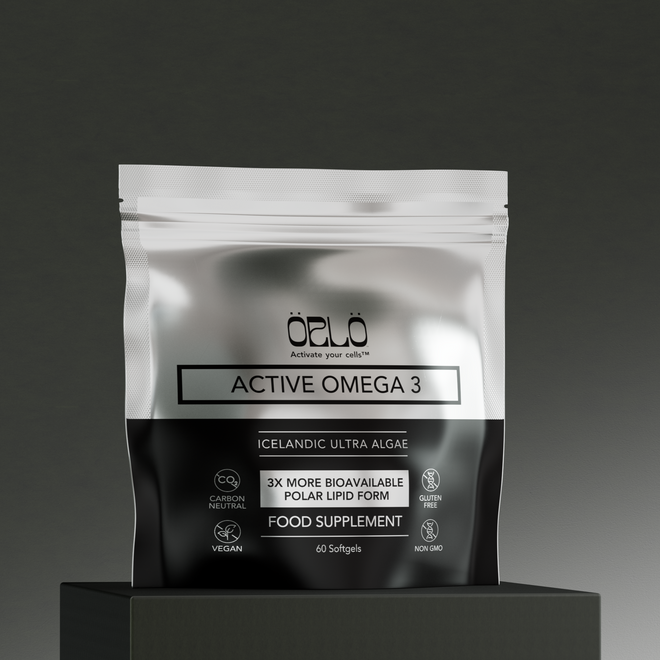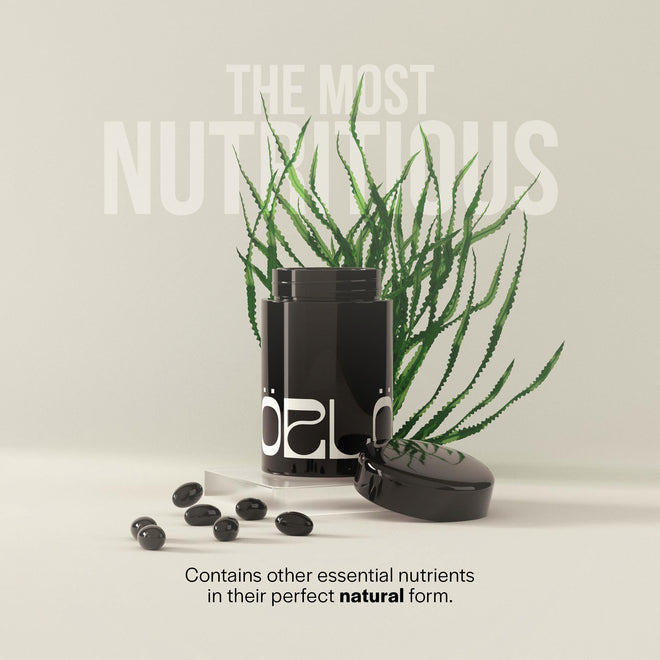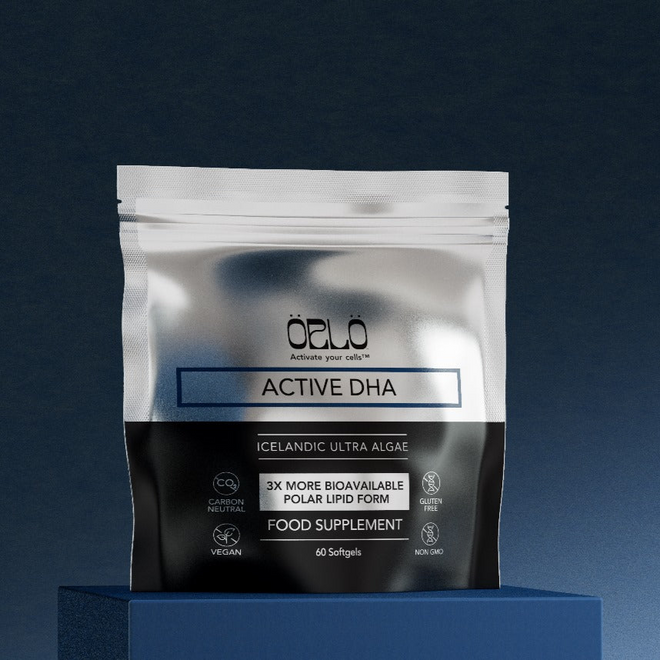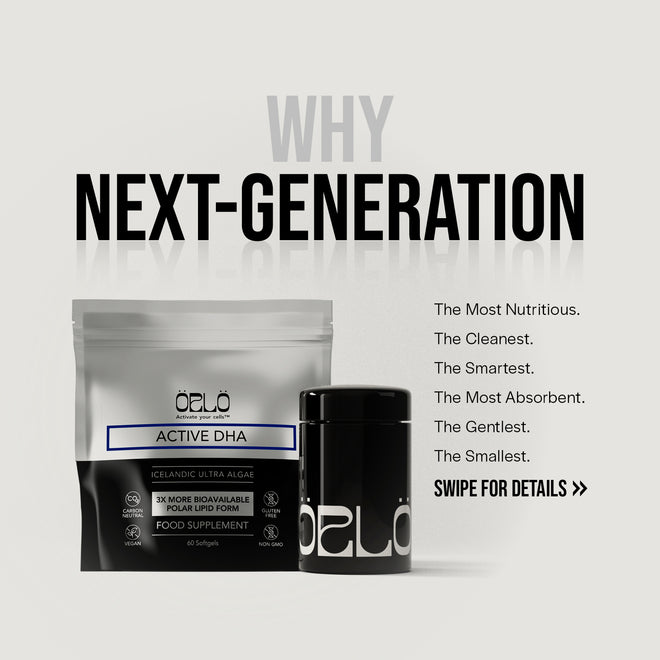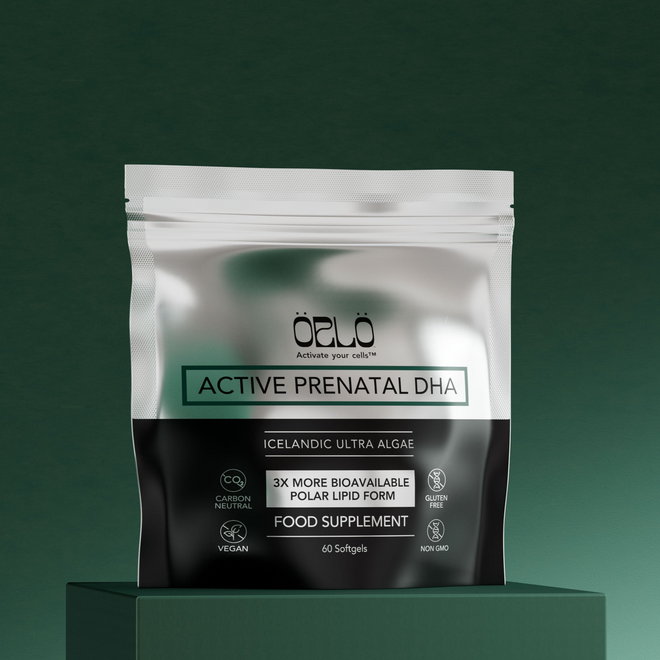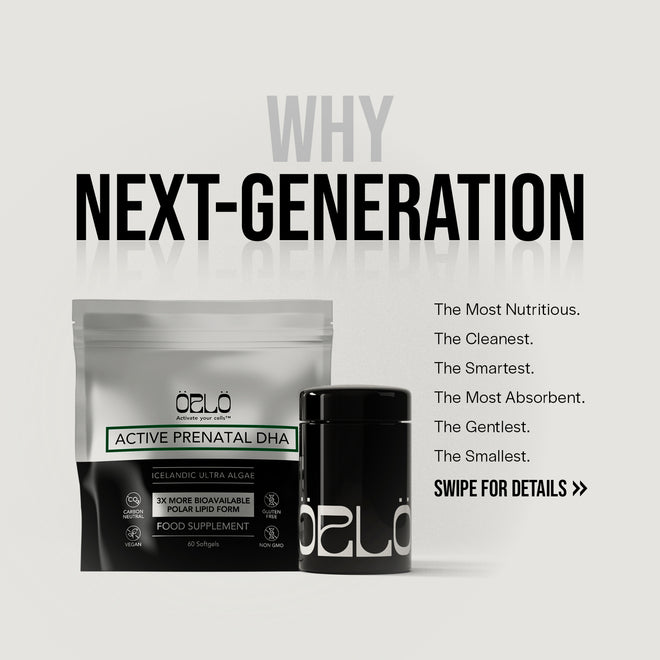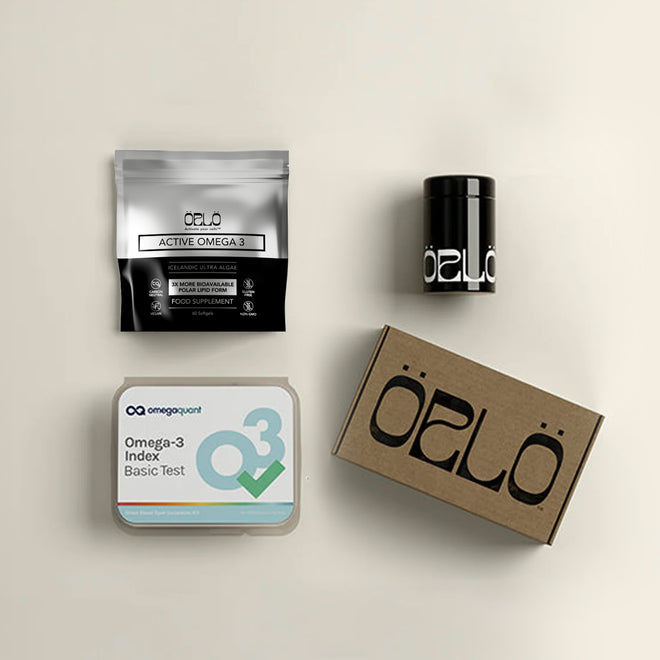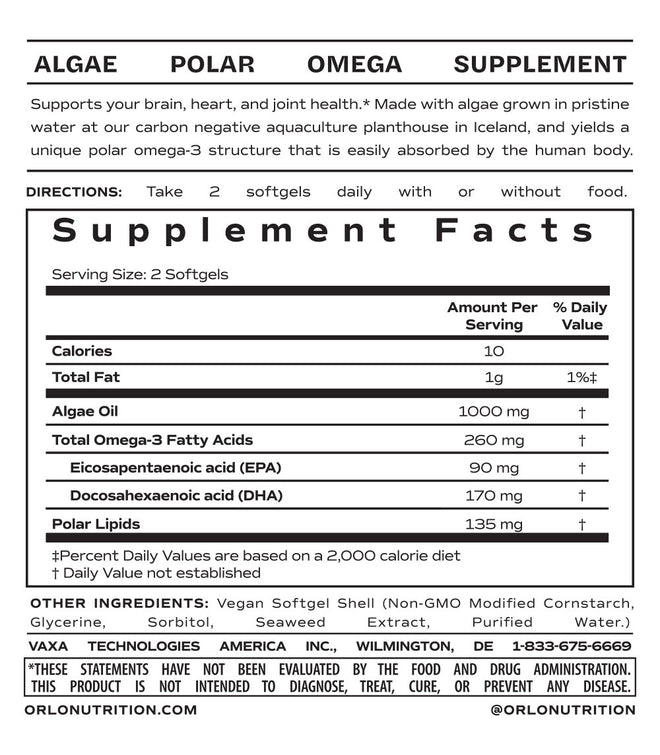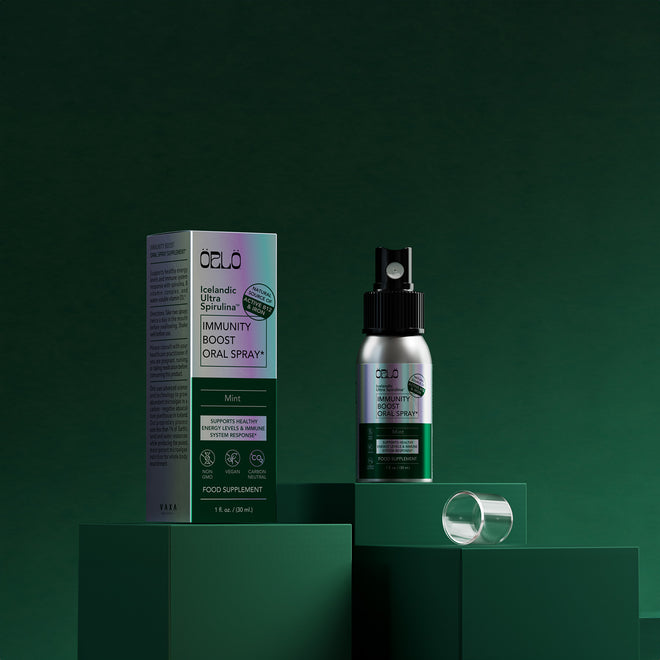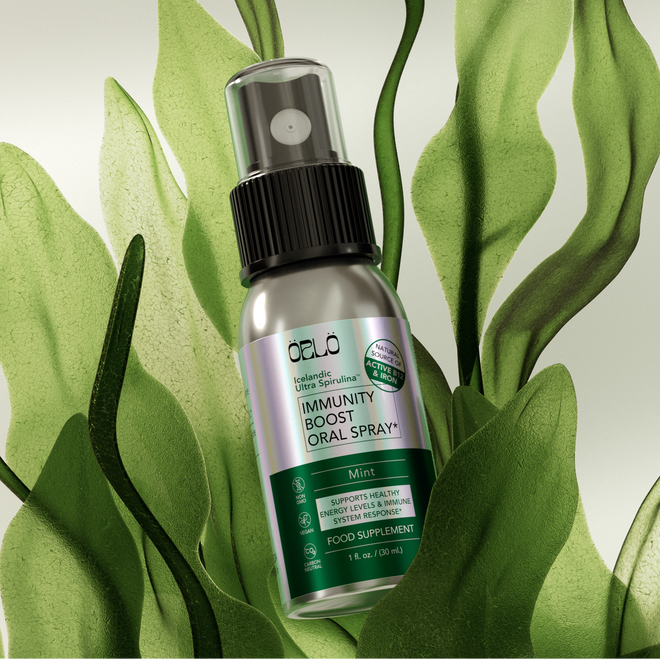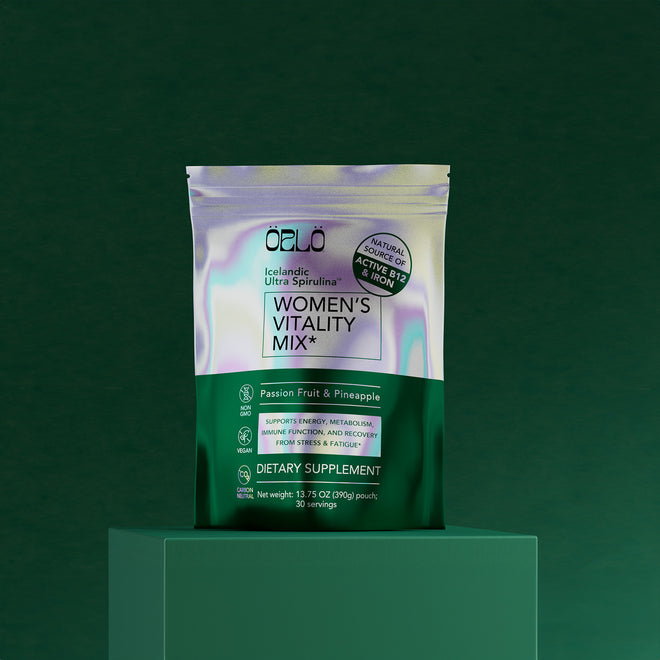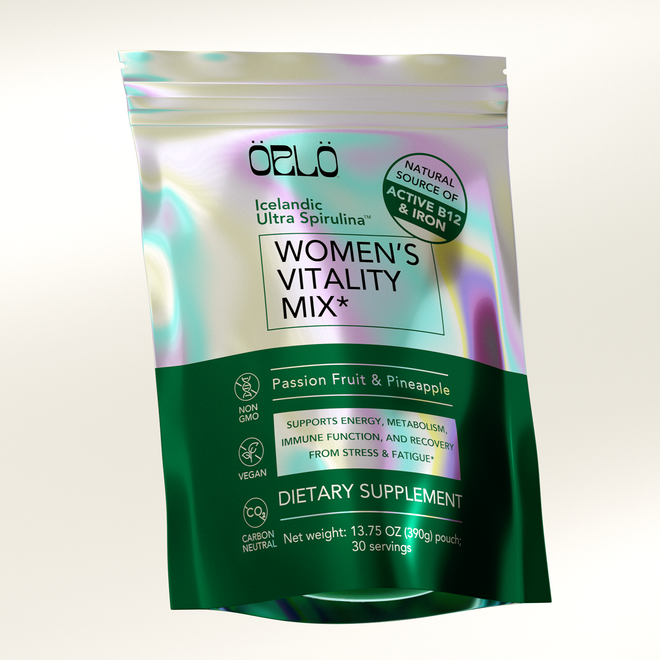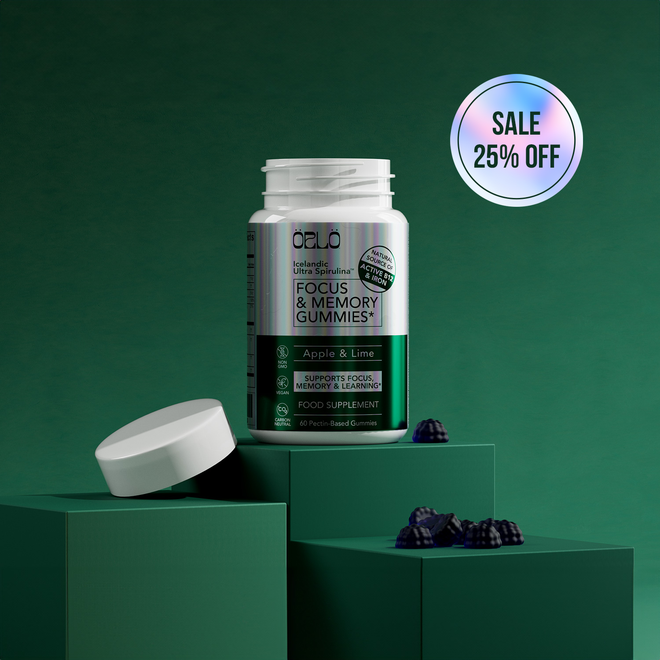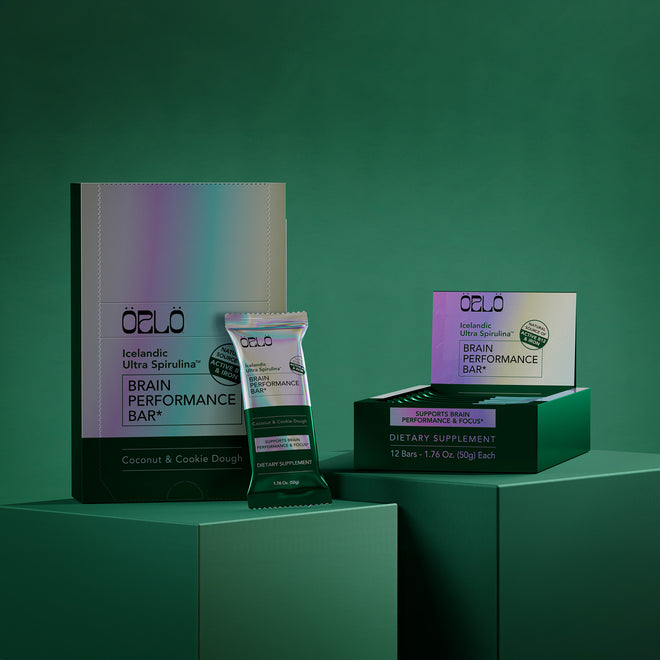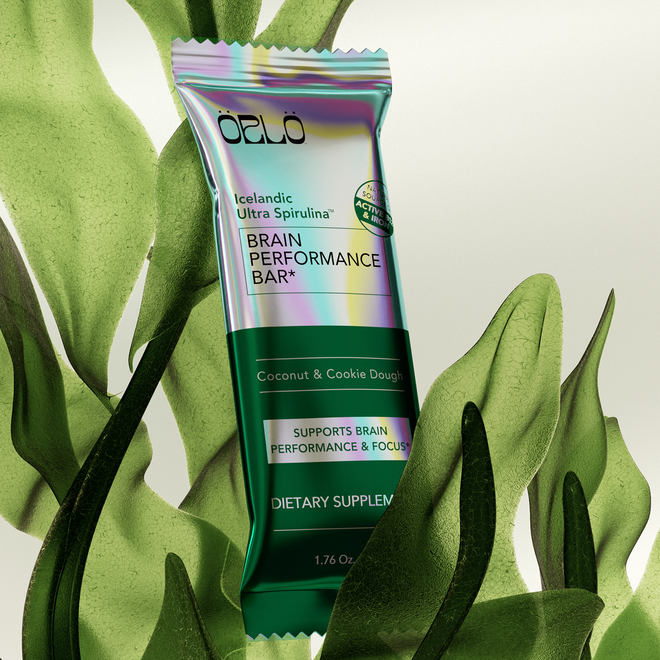Free shipping on purchases over $69
Optimal Thyroid Health: A Comprehensive Approach To Healing From Hypothyroidism With Risa Groux, CN
Watch the episode here
Listen to the the episode here
Are your daily habits unknowingly sabotaging thyroid health? In this episode, Corinna Bellizzi interviews Functional Nutritionist and Certified Autoimmune Coach Risa Groux, CN, who shares her personal journey of overcoming Hashimoto's and hypothyroidism. Risa uncovers how toxins, stress, and diet impact thyroid function and offers practical solutions for reclaiming your health. From debunking diet fads to addressing root causes like heavy metals and inflammation, Risa’s approach to healing is both comprehensive and empowering. Whether you’re dealing with thyroid issues or seeking overall wellness, this episode will inspire you to take control of your health.
Key takeaways from this episode:
- Discover how toxins, heavy metals, and stress contribute to thyroid dysfunction and how to reverse it.
- Learn about the importance of personalized nutrition and why one-size-fits-all diets fail.
- Explore Risa’s 90-day AIP protocol designed to combat autoimmune conditions and inflammation.
- Understand the connection between gut health and thyroid function, and how addressing leaky gut can transform your well-being.
Guest Social Links:
Website: https://www.risagrouxnutrition.com
LinkedIn: https://www.linkedin.com/in/risa-groux-cn-83b97886
Instagram: https://www.instagram.com/risagrouxnutrition
Facebook: https://www.facebook.com/risagrouxnutrition
---
Optimal Thyroid Health: A Comprehensive Approach To Healing From Hypothyroidism With Risa Groux, CN
Welcome to another interview episode. You've likely heard that autoimmune dysfunction is on the rise. You'll even hear terms like hypothyroidism and Hashimoto's in passing conversation. Endocrine disruptors, or hormone disruptors, are present in our environment, the water we drink, the air we breathe, and the food we eat.
To talk about this health concern, I'm joined by Risa Groux, a Functional Nutritionist and Certified Autoimmune Coach, in a private practice in Newport Beach, California. As I bring her on the show, remember that the information we discuss is for informational and educational purposes only. No patient-provider relationship is formed. If you have a specific health concern, please connect with your healthcare provider. With that out of the way, Risa, welcome to the show.
Thank you so much, Corinna. It's great to be here.
Overcoming Hypothyroidism And Hashimoto’s Disease
I understand that you came to this work in nutrition and lifestyle through your own journey with hypothyroidism and Hashimoto's disease. Do you want to talk about that? What brought you to this moment?
I started with a really bad relationship with food as a kid. Everybody was on a diet in my house. Everybody was trying to lose 5 or 10 pounds. I had this really bad relationship because food was either considered good or bad. I was very confused because I thought, "Bad food tastes pretty good to me." I had this really weird relationship with food. I was always on a diet from high school. I was trying to lose my three pounds, or whatever it was that would make me perfect, so I went on every diet known to man through my years. I realized this is ridiculous.
It's ridiculous. This is not about starvation and deprivation. What works for one does not always work for everyone. I was always interested in nutrition, and then I got married and got pregnant immediately. We didn't even have to think about it or talk about it. It just happened. I had a great pregnancy, and then when I was trying for my second, I just couldn't get pregnant. I would try and try, and then I would get pregnant and then miscarry. That happened several times. Finally, I went to a fertility specialist who did a whole bunch of testing.
This was many years ago. He pushed the script across the table and said, "Here, take this." I said, "For how long?" He said, "Every day." I said, "For how long?" He said, "For the rest of your life." He was giving me a synthetic medication to help my body produce thyroid hormone because my thyroid was apparently this underachiever. I walked out of that office with two major questions.
Why is my thyroid an underachiever? Why is he not wondering why? Why is he just giving me medication and not worrying about why my body's not producing what it's supposed to produce? That started me on my journey. I ended up finding out that I had this very common gene mutation called MTHFR. I took my B vitamins and ended up getting pregnant. That really started my list of what real health is.
I had an easy pregnancy. My son was born and everything was great. A couple of years later, I went to a naturopathic doctor just to get a checkup. I was feeling tired, but I had two kids. I was running, I was going, and they found that I had antibodies to my thyroid called Hashimoto's. This is where I put the brakes on. I was like, "This is enough already. Why are the wheels coming off the bus here?" I dove in, and at that time, there was nothing out there that I could find that had a list of root causes of autoimmune disease.
Hashimoto's is an autoimmune disease that attacks your thyroid mistakenly. It thinks it's the enemy and starts to attack the thyroid gland. I had hypothyroidism that was caused by Hashimoto's. Basically, I wanted to find out what was happening. I put together this list after many months of research. It turned out I had all of them. I put that list in my book FoodFrame: Diet Is a Four-Letter Word because it was just never accessible to anyone until now. You can find that information, but I couldn’t at the time.
I went down that list, and I was able to reverse my Hashimoto's. It took me quite a few years, but I was able to reverse it. I really went through a lot of testing. I was already in nutrition, but I went back to school to get my nutrition certification. I found functional medicine, became a functional nutritionist, and really focused on root causes and prevention.
Let's pause there for a moment and talk about the journey to diagnosis for something like hypothyroidism. Often, people will recognize something simple, like their throat just seems a little bit spongy. In my case, when I was diagnosed back in 2009, I was coming off a three-day juice fast that I had been put on by a naturopathic doctor I worked with. It was just part of a reset. As I started to reintroduce food, and this was part of trying to figure out if I was allergic to anything or had any sensitivities, I noticed that I was having a little bit of a tough time swallowing.
I also reflected back on my knowledge of the thyroid and an earlier session I'd had with a friend of mine who does Reiki. When she had gone over my throat, she said, "I'm feeling blockage here." I had never put a ton of stock in Reiki. I didn't know much about it, but all these dots started to connect. I went to my doctor, and we ran my thyroid panel. I asked for TSH, T3, and T4. I wanted to see what my free T3 and free T4 were as well. We had the complete panel done.
It comes back, and they say, "You have hypothyroidism. You're not producing quite enough. You're on the very low range of how much you should have in your system of T3 and T4." As it stands, I then had to take a prescription. Much like you, I asked the question, "For how long?" When they told me it was indefinite, my reaction was, "But I don't want to take a drug for the rest of my life." Since then, I've had other doctors who have helped me understand that taking something like Nature-Throid, I take the natural version, which is desiccated from mammalian tissue, which means I can never be fully vegan unless I jump ship back over to the synthetic stuff.
When I took the synthetic stuff, it made my heart race. It would wake me up in the middle of the night. I would feel really sped up, and it didn't sit well in my system. This is what works for me. I've been on that natural version, something like NP Thyroid, but it's been Nature-Throid, it's been Armour. All of these are in the same class. That journey for me wasn't perfect either because I didn’t like the idea of always being on something, but my next endocrinologist shared with me that it's very similar, in a way, to taking Vitamin D. Many people have to take Vitamin D because they don't produce enough from the sun or they're spending too much time indoors.
You have an underactive thyroid, and this is what you need to supplement your system with to ensure you can be healthy day-to-day. I still have not accepted that as my long-term, forever prognosis. I've been working to reduce my levels. As I got to know your content and listened to you on a few podcasts, I wondered, “How exactly did she completely get off these thyroid medications? What was that journey like?” You mentioned a ton of tests that you took. I imagine it involved monitoring your T3, your T4, your free T3 and free T4, as well as TSH.
Yes, so I actually do a full panel, all nine markers, but the ones you mentioned are really good. We're also looking at whether something is competing for the thyroid site, like reverse T3. When you reverse that pool of T3, which is your active thyroid hormone, it’s only 7% of the equation. When we're reversing it, we usually see a lot of inflammation, and we can see stress. If your adrenals are going and you're living a very stressful life, then you have a high probability of reversing your T3 stores. It may not be that you're deficient, that you're not making enough, or that you're not converting enough. It just may be that you're stealing from the pot because of your systemic inflammation or your level of cortisol production.
The other thing we look at is T3 uptake, and that has to do with sex hormones because remember, in the endocrine system, there are three departments. We have thyroid, sex hormones, and cortisol or adrenal glands. Those are the three things that can affect it. There are other things that can affect the thyroid for sure, but those are the three major ones that can have a significant impact on thyroid function. I always look at T3 uptake. If you're taking the pill, the birth control pill, you have a dysregulated hormone, so it's likely that your T3 uptake is going to be low. If you have a lot of testosterone, it's likely that it's going to be high.
The same goes for men. It’ll have an estrogen and testosterone impact on that. That's an important thing to look at because if you're taking the pill and you're having dysregulated thyroid hormone numbers, it's important to see what's causing that. Lastly, I look at two antibodies, thyroglobulin antibody and TPO, thyroid peroxidase antibody. I'm looking at all nine markers. I did not get off my thyroid medication. Unfortunately, I'm still in that process, but I was able to reverse my antibodies. I started at 1,458 for my TPO, and it went below 34, which is what is considered undetectable.
That's a huge movement. I turned out to have major heavy metals, even though I took out my fillings years prior. I ate tuna fish from the time I was a little kid, and then, of course, in the '80s, when the ahi came onto the scene, I was doing tuna by day and ahi by night. I eat a lot of fish because I don't eat red meat. I eat a little bit of poultry, but I eat a lot of fish, so, of course, mercury is going to have an impact on your thyroid.
Some people have an issue absorbing enough iodine as well. Iodine is somewhat stimulating for the thyroid. I've seen naturopathic doctors put people on a supplement called Ioderol, which has a combination of iodine. What is it that you like to use for something like that?
I don't use iodine at all unless I test somebody because there are two schools of thought on iodine. There's a whole school of thought that Hashimoto’s should not have iodine. There are a few people who feel that iodine is really essential for Hashimoto’s. I tend to be on the former side, that I don’t really give iodine to people, but I think we get enough from our food. Although not everybody absorbs it, I believe that if you have enough digestive enzymes, if your pancreatic enzyme production, your hydrochloric acid, all your enzymes are sufficient enough, then you're going to absorb your nutrients.
I think the challenge then is, too, if somebody is following a strict diet, you'll see, as purported by Dr. Michael Greger, who advocates for a Whole Foods plant-based diet, with no additional oil and no salt. Iodized salt is typically how you get salt and iodine into your diet if you're getting it from a food source. If you've said goodbye to fish or other marine animals, you likely aren’t getting iodine from that source. You would have to be consuming seaweed to get it, and then how much. I think it's all dependent on what your diet is. This is something else that you've spoken to in episodes I've heard on your podcast and in reading some of your website, just that there's not one unique, universal diet that can support somebody's journey to health.
There are a lot of fads out there. There are the Whole Foods plant-based advocates like Dr. Michael Greger. I’m trending in that direction myself. You also see people looking at something like keto, paleo or even carnivore. Where do you sit on this whole spectrum, and what modifications, if any, do you see as being universally supportive of getting a healthier endocrine system?
Everybody is different. It just is the way it is. We all have different genetics. Our genetics load the gun, and our environment and our lifestyle hold the trigger. If you are somebody who has these particular genetics and you're living next to a steel plant, you're going to have some different variations. You're going to have different expressions. If you're somebody who exercises a lot or doesn’t exercise, if you're somebody who can't absorb the Vitamin D from the sun, everybody is different. Everybody is different.
Our genetics load the gun, and our environment and lifestyle hold the trigger.
I do a lot of genetic testing because you may do well with saturated fat, but you do not do well with monounsaturated fat. You may do great with lifting weights, but you do not do well with cardio. Everybody has different absorption genes that we need to supplement with Vitamin E, or we don’t, or whatever it is, then I do it specifically by the person.
The second thing that I did was create FoodFrame, which is my methodology because when I first started my practice decades ago, I put everybody basically on the same anti-inflammatory diet. I did all this food allergy testing, and I was like, “These are the foods you cannot eat.” I started to realize when people would have so many, and I’m like, “Why did this one have 3 and that one has like 43?”
I realized it's not the food allergies that are the problem. It's the gaping holes that are causing these undigested proteins to go into the body, come in through the back door, and the body says, "Who are you? You're the enemy," and it starts to create antibodies to these foods. It's not that you're allergic to carrots or chicken. You weren’t born with that allergy most likely, but you have this sensitivity to it because you're creating an antibody when it comes into the body through the back door. It's the leaky gut that's the problem. It's the food allergies that are the consequence of that leaky gut, so I'm always looking at the root causes.
I wrote the book FoodFrame and the subtitle is Diet is a Four-Letter Word. I'm not about the diet culture. I do believe that we should all eat differently. Why is it that your neighbor read the book on keto and lost 42 pounds, and you read it and started keto, and nothing happened, you gained weight, or you felt tired or bloated, or whatever it is? It's because we all are very different. I would have to see how your gallbladder is doing. I would have to see what your steatocrit is. Do you have fat malabsorption? Do you have enough enzymes to break down fats? Do you even have a gallbladder to begin with?
There are a lot of schools of thought that you should be on keto, and you could be on keto for the rest of your life. I don't believe that. I believe that you should take it in three-month pieces and take a break. It just changes your fuel source from carbohydrates to fat, but again, if you don’t have a gallbladder, I'm not going to recommend that for you. If you don’t have blood sugar issues, I'm not going to recommend that for you. Everybody is different. You may need to be on an AIP, the autoimmune protocol, if you have any antibodies in your system.
You go to the doctor. You've got this raging fire in the basement. You've got all this antibody production, and your army is fully engaged, so they give you a little squirt gun and say, "Here, try this," but we really need the fire hose. We've got a raging fire in the basement. We're going to do that through food and some supplements to put out that fire. AIP is something that I recommend. It's a 30-to-90-day protocol. You don't have to live on that. I would suggest maybe paleo or low lectin protocol for that person, depending on how they are, what their genetics are, and what works for them.
I had something interesting happen when I went to a more fully plant-based diet over the course of 6 to 8 months. For one, I think my inflammation got more under control than it's probably ever been, but I'm eating more, I think, micronutrients as a whole because I'm eating so many plants. What I found is that I was suddenly having the same symptoms I had when I was overstimulated with levothyroxine. Let's just say, in my case, when I took a synthetic hormone for my T4 or T3 or a combination of both, I tried a lot of different things. I would wake up in the middle of the night with my heart racing, almost like a pounding in my chest type thing. I started to have that experience on my typical dose of my thyroid meds. I was like, “What could be causing this?”
I did a little bit of reading, and I was observing a little bit of the things I already knew just coming to the surface again, whereas it’s probably related to my toxic load because I'm not consuming animal products the same way that I was before. As with any diet, you eat further up the food chain. These animals also bioaccumulate the toxins that they consume. I probably have some sensitivity to that already. I have one representation of ApoE4, as I shared before we got into this recording, which can affect other things, such as how you integrate the Omega-3 DHA into your tissues, like your brain and your eyes, but guess what? Fats also impact your endocrine system.
It could very well be that I was consuming something that was getting in the way of my system essentially working at its most optimal capacity and that by removing it, suddenly I'm overstimulated. I had reduced my dosage by one-third. I took my new blood tests, and things are appearing normal. My body temperature, which is an indicator for this thyroid hormone stuff, too, is at 98.6 in the afternoon for the first time that I can remember. Usually, it would be like 97.2 or 97.6, somewhere in there. I can tell because I feel warmer, too. Over the course of two days, I’ve started to feel like I still might be overstimulated because I started waking up again in the middle of the night. I’m feeling like this little bit of almost panic, like my heart's thumping.
It's not related to stress. I don't feel stressed. It feels like I'm overstimulated, the same way as I was before. It’s time for me to get another test, and this has been an 8 or 9-month process. I’m like, “To me, it seems like there could be a silver lining in the clouds that I'm able to get off of my thyroid medicine.” Do I intend to stay whole foods plant-based for the rest of my life? Maybe not. I don’t want to be militant about my diet.
Somewhat to your earlier conversation, it’s like, what works for you might work for a while. It could get to a point where it's just not working anymore. I have always tried to be very eyes wide open about that, listen to my body and health, and really just see how I feel after consuming something. I’ll tell you, I miss my fish.
I bet. I love the story, but I’d love to know, did you remove gluten and dairy at the same time?
No, I’ve been off dairy for a while, though. I still have butter sometimes, but I don’t do milk, and the reasons for that are twofold. I learned that I was sensitive to milk because my son was sensitive to milk, and I didn’t want to test him when he was three years old. I tested myself, and I came back with, oh, look, intolerance here to this dairy thing. That’s why I get the sniffles every time I have milk in my coffee, or that’s why I get so much phlegm when I eat yogurt or ice cream or something like that, or maybe that’s why I get loose stool after, all those things.
You’re in the two-thirds of the population. I stopped eating it, basically. Every once in a while, I'll have a little ice cream. Every once in a while, I’ll have a whey protein shake or something like that, and I don’t seem to be sensitive to the whey protein. I think it’s the casein, but it just means that I haven’t had that constant in my diet for a long time, like 3 or 4 years. That was already gone. I still consume eggs periodically, but it's more like when I feel like my body wants it.
I also took an Everly Well food sensitivity test a while ago and learned I'm somewhat sensitive to eggs. I’m also somewhat sensitive to chicken, which I found surprising, and even beef. I’m like, “If each of these things were creating an impact on me and I eliminated them, then maybe that was all playing a part in it, too.”
It's possible, but I would check to see if you have a leaky gut, too.
That's a possibility. I cannot do quinoa or broccoli.
Interesting.
Weird. I can do every other crucifer and I consume Brussels sprouts about twice a week. It's not just a blanket crucifer issue. It's broccoli specifically and any cultivar of broccoli. I can't do broccoli, rabe or Chinese cultivar, and I cannot do American cultivar.
You don't feel well.
I get stabbing pain, bloating, and then it comes on first with cold sweats. Cold sweats, then stabbing pain, pain and bloating, and then I have to vomit. Really not pleasant.
We're going to avoid that one.
The same thing happens with quinoa, and I didn't use to. I used to consume quinoa like crazy. I loved it. I had this special salad I would bring to every friend event or book club I went to with quinoa and cranberries and lime juice and olive oil.
You can try millet as a substitute.
It's interesting because I'm sensitive to buckwheat, which I learned through the Everly Well test too. I'm like, really? Not wheat, not gluten. Gluten, I'm fine with.
Comprehensive Bioscreen
I would look into how leaky your gut permeability is.
That's a good question for people. How do they find out? I think a lot of the tests that you've mentioned can be somewhat expensive. I think giving people a litmus test for what they can expect is they go to their doctor or to a professional like yourself and say, "I'm really curious about the thyroid thing. I've suspected for some time that I might have an issue or I might have leaky gut because some things are making me sick that didn't used to. How do they do that?"
Everybody who I work with, they're coming into my office, and I'm going to order a comprehensive bioscreen at a very comprehensive lab that is going to give me all four markers of their blood sugar, so insulin, including, it's going to give me all nine markers of the thyroid. It's going to give me all of their white blood cells, and we're looking for variation and a pattern of potential viral or bacterial. I'm looking at all their iron markers and inflammatory markers, which conventional doctors do not test for, which is a shame. I'm looking at all of those, Vitamin D, all these things that are super important. In addition, you're going to walk out of my office, or I can see people through Zoom. You're going to get sent a stool test, and this stool test is very comprehensive. It's about 84 pathogens. I'm going to be able to see, do we have H. pylori, do we have Giardia, parasitic pathogens?
We're going to see where the good guys are. How many good guys do you have? Akkermansia muciniphila is a billion. It's a very important protective microbe in the gut, and so it's super important to make sure you have it. I test everybody, and some people don't even have it. We’re supposed to recolonize that in our mucosal lining. Some people don’t even have it. I'm looking at the bad guys.
Do we have overgrowth? Do we have H. pylori? Do we have parasites? Do we have worms? I'm looking to see if you are digesting your fats. Is your pancreatic enzyme sufficient or not? I'm looking at any microscopic blood in your stool. We've been able to prevent a major cancer situation with somebody that I've worked with. Typically, it's microscopic blood, but we just want to rule it out. I'm looking at inflammation, intestinal lining, and I'm looking to see how leaky you are. We also test for anti-gliadin, an antibody for gliadin, which is one of the most common proteins in gluten, to see how sensitive you are.
Sounds like far more than the Everly Well test would because you're not taking a stool sample in that case.
I'm taking a stool sample with that test.
I know, but the Everly Well is something else.
The Everly Well is not. We're not really looking for allergies specifically. I do a whole allergy panel if we need to, but I don't usually do that because it really is the consequence. It's not really the issue. It's just a symptom of the problem.
It's only useful if you have consumed that thing recently because, for instance, on mine, broccoli doesn't show up and neither does quinoa because I'd never eat them. You have to have consumed them in the last few months. I only do by accident. I didn't realize those Late July chips that I love so much had quinoa in them, and I progressively became more sensitive to them. I'm like, “I feel like I just had broccoli. What happened?” It was because there's quinoa in the Late July chips.
The Siete puts them in there.
I need to know about what these tests run and what it looks like to work with you.
The comprehensive bioscreen, the blood panel that I do without any hormones or anything, we can do that if we need to, but just the regular one is about $298. We see amazing information with that. When I used to go through my insurance to get my blood labs, my copay was more than that.
I know. I've had the same experience. I can't even get my thyroid full panels done without a fight. It ended up being something where I could do it for the same amount or less. I'd pay $160 if I went through them. I'm on Kaiser, and Kaiser is way better. They're just easier to work with than my prior age. I had a PPO before and it was a lot harder. This one is rolling with me. I'll just pay something like $20 and we're good to go.
The stool test that we try to run through insurance, that's the only thing we run through insurance, and some insurance will cover it. If not, then it usually runs in the neighborhood of $350 for that test.
These are things you do about once a year or something like that?
I do it the first day somebody walks in because those are the tests I need. I always say I'm not good at playing darts with the lights off and cannot see the target. Since it's dim, I can't really see where I'm going because everybody is different. I wouldn't need a test if everybody were the same, but I want to see what's specifically relevant to you. I want to do these tests and then I will do a follow-up test. Typically, three months after we start working together because we will see a lot of progress. We don't have to test for everything, but we test for a lot, almost everything. The stool test I don't typically do over and over again unless it's a particular situation that requires that testing.
If they saw that they had a specific pathogen that was really concerning.
Correct. We look at a lot of root causes. A lot of pathogens are root causes of autoimmunity. We treat all of those things with natural supplements, what I call antibiotics. Sometimes, we will do a follow-up test, but usually, the symptoms go away. We don't necessarily need to, but I always give the option to say, "Do you want to retest this?" because it is expensive.

Very cool. Imagine, in some cases, you're working with a person to get these tests through their care provider if they have really good insurance. In other cases, you're just working directly with them to do the labs.
I usually work directly with the patient because I've tried so hard to help people save money through their practitioner. Unfortunately, the practitioner won't do it because it's going to be a front-office nightmare for them or because they don't even know what the lab test is.
Sounds all too familiar.
Yes, exactly. Every person, mind you, we're talking about autoimmunity, goes through six physicians before they're finally diagnosed with an autoimmune disease. Just cut to the chase and get these tests done so that you know, if something's off, if you feel that something's off, something's off. I always say, trust your body, you know it better than anybody else does. I work with people all over the country, and so I can work via Zoom with everybody, and I'm very fortunate. I get to watch people heal all day.
Trust your body, you know it better than anybody else does.
Protocol
That's amazing. I'm curious. You mentioned your protocol briefly that you outlined in your book for helping people who have Hashimoto's or hypothyroidism. Could you summarize it for our audience just so they get a feel of what that might look like?
If you're walking into my office with antibodies, whether it's TPO or thyroglobulin antibodies or one or both, then I'm going to basically put you on my detox for two weeks. We're going to get the toxins out of the system so the liver can work more optimally. You'll start to feel better. Perhaps most people do, depending on how you eat when you walk in the door, but we're starting to decrease that systemic inflammation and increase that good gut health. After those two weeks, I'm usually going to put that person on an AIP protocol for 90 days. That's the fire hose.
After that, depending on how you are, usually, I've really never had an issue where people still have symptoms after all of that, but if they do, then we do some testing, and I keep digging to find out what is causing the issue because there are so many things. It could be dental, mold or mercury. It could be tons of things. We start getting a little deeper dive on testing.
I've heard Dr. Mark Hyman talk about, for example, his experience learning that he had high heavy metal levels because he was consuming so much fish. If you consume swordfish and tuna and a lot of these larger-bodied fish regularly, you will develop mercury toxicity. There's a pathway to ensure that you can help scrub that out of your system, and sometimes it really is getting down to moderation and what can work for you.
We'll naturally chelate a little bit. We'll just decrease our load, but not everybody does. Some people need assistance with that, but first, you've got to find out how much you have.
Unveiling Mysteries
That's right. You mentioned a story of your own where you had, apparently, an abscess in your jaw, which was discovered by a really prescient doctor, a dentist, at one point. I wanted you to share that story because I think it can help people understand that sometimes there's a mystery behind the mystery you didn't even know.
Exactly. I was chasing my thyroid and my Hashimoto's for a long time. I did a lot of research for years and years and years and years. I finally found a functional doctor that I felt like knew more than I did. I went to this doctor and spent thousands and thousands of dollars. I could not believe how many supplements I took. People think I give people a lot of supplements. These were a lot of supplements.
I did the protocol. I was probably 99% compliant. I did not eat any fish. I did not eat any sugar. I did not drink alcohol. I worked out. I did every single thing for three months. I retested, and the needle moved about an inch, and I was just devastated. How could all of this happen? What is going on? My cholesterol was in the 300s, and I have a gene that my whole family has that we tend to run high in cholesterol.
I wasn't really worried for my cardiovascular health from that, but I followed it up with the Boston Heart Lab, and all my markers were super high risk for cardiovascular events. I know that teeth and heart are related. That's when I ordered my own stool test and took the stool test in. I went into both the Boston Heart Lab and a biological dentist, and she found it right away.
She said, "That's a salivary bacteria." She put me under the scan and found an abscess that had grown around a root that had been there since they had extracted my wisdom teeth 23 years prior. I did not feel anything. You couldn't see anything. Nothing, zero. When she went in to open up my jaw, she found a piece of metal in there as well as the root, but we removed all that. After that, my numbers really came and normalized. My thyroid, my blood sugar, my cardiovascular, my cholesterol, everything normalized after that.
It reminds me so much of, I told a story earlier on this show where I brought Candace Barley. She had suffered from a syndrome where, when you get breast implants, your body fights the implant itself and you end up getting sick. She suspected it was all related to this thing, but nobody would listen to her, and then, as soon as she got the implants out, everything returned to normal, and she was in danger of having liver failure and kidney failure. It was like all systems were collapsing.
I worked with a few people who, when we took out the implants, rashes, rheumatoid arthritis, major food sensitivities, major, major. I had one woman who was eating four foods. That's it. We changed all her pots and pans. It was just crazy. The limit of her life was she couldn’t go out. She was very dysfunctional because she couldn’t eat anything, and so she took her implants out, and everything was gone.
You have a foreign body, and some people's bodies really fight whatever that foreign thing is. Others can tolerate it without a lot of symptoms and sometimes with no symptoms. Each person is their own galaxy in a way. If you think about the fact that half of the cells in our body aren’t even our own, it makes sense. There are going to be some that are perhaps more sensitive than others. If you have an insufficiency with your MTHFR, the gene that some people like to call it, I can’t say it on this show.
Each person is their own galaxy in a way. If you think about how half the cells in our body aren’t even our own, it makes sense.
What you would say to somebody who cut you off on the freeway. That’s what it is.
Supplements
I'm not going to get political on this show, but that was funny. I wondered, too, if you had any particular supplements that you think of as pretty much universals. I mentioned Vitamin D. We at Orlo, of course, have our Omegas. Getting your balance of Omega-3 in place is really great for your hormones.
I personally take four of Orlo's Omega-3 every day, and for me, that's enough while being vegan. I'm not eating any fish, and I take two doses a day because I'm not getting that at all. That's sufficient for me, with one marker of APOE-4, to get to an 8% Omega-3 index, which is ideal. I wonder what you also go to, perhaps Omegas, perhaps Vitamin D, maybe it's iodine. Well, you said no to the iodine because you're of the school of thought that you have to test that one, but I'm curious to see what else is in that toolshed.
Pretty much everybody gets a Vitamin D because it's actually not a vitamin. It's one supplement for the rest of my life. I have a whole plethora of them. It would be my Vitamin D. It's anti-aging, anti-cancer. We will not make bone without it. It is critical for immunity, gut, thyroid, brain, and everything. We really need Vitamin D. Everybody's getting Vitamin D, and we have it with a K2 because it's easily absorbable and there's no junk in it. It drives me crazy how many bottles I throw away with people walking into my office that have soybean oil and corn oil in their Vitamin D.
Vitamin B, my B Ultra, is another one that I really highly recommend because it is a methylated form of B vitamin, but it's a B complex. Not only do you have your methylated B12 and folate B9, but you have all your B vitamins, and we really need that for RNA, DNA, gut, brain. We need it for everything. I'm going to give, most likely, somebody anti-inflammatories if they need it. I'm going to give them my Turmeric Max. I have Resveratrol, Glutathione is another big one that I use.
Not everybody gets all these, but if you have my Fab Five, if you have any autoimmunity, you're going to get my Fab Five. That's Vitamin D, Omega, glutathione, our master antioxidant, turmeric, and resveratrol. If you are 45 or older or having symptoms, I will likely give you my Enzyme Max, a digestive enzyme that has hydrochloric acid to break down proteins and pancreatic enzymes to break down carbohydrates and fats. Ox bile for fat absorption. It depends on who you are and what you're coming in with, but those are my pretty customary ones. I do like a short-chain fatty acid; that's my Post Bio Max. That is basically a post-biotic. It feeds the colon, the end of the line and in a probiotic if you need one.
You mentioned earlier Agarmancia as an example. I know Pendulum is out there with their product. I personally took it for a while, and I didn't notice any difference in my digestive health, so I stopped spending the money.
You don't need it forever. You just need to get it in your system. If you don't have any, you can recolonize it with those cranberries you were talking about, not the dried cranberries, but the real cranberries, pomegranates, or some berries. Those will recolonize it in your mucosal lining.
I put frozen cranberries in my protein shake every day. It's one of my joys. I think it's such a healthy treat that why not have these? They last all year. You can just throw them in the freezer, and so many of the shakes out there are too sweet for me anyway. It helps cut the sweetness. Frankly, I just get the unflavored and I doctor them with my berries, and that's sweet enough for me. I encourage people to do that.
Just like getting a good, healthy probiotic. Anytime you are afflicted with a need for an antibiotic, I feel like we don't talk about that enough, even though doctors will recommend it. They'd go, "Oh, well, I'm going to get my Yoplait." It's like, sorry, Yoplait's not going to do it for you. Maybe you need to go to something that's a little bit more supportive. Getting a broader scope of your antibiotic covered with a probiotic is helpful. Looking for a probiotic multi, essentially one that has several different strains in there is a really good idea.
We're starting to see this is where science is going: more customized probiotics for people, depending on whether you have chronic UTIs, digestive issues, acne, or whatever it is. We're starting to see more customized probiotics, which I'm super excited about. I think there's movement in the right direction for sure. Even just some that I'm seeing in the refrigerator section at my local health food store where they're combining so many different types. Even if you do just go through a protocol where you take one month of a supply for something like that, it can be restorative and helpful. Really, eating whole real foods, a wide variety, is going to give you a healthier gut, and that's really important.
Fiber.
Achieving Optimal Thyroid Health
I've so appreciated your time here. I always love to learn a little bit more about how I might also address my personal issues with hypothyroidism. I feel like I'm doing pretty darn good, but, you know, there's always room for improvement, and that's how I look at health. I encourage people to consider what they learned. If there's something that would really apply to them, do you have any other closing words you'd like to leave our audience with, Risa?
If you want to have a deeper dive into thyroid, I have a course on my website called Achieving Optimal Thyroid Health. I really break it down, whether you're hypo or hyper, Hashi’s or Graves. If you had a thyroidectomy, what should you eat or not eat, what supplements should you take, what supplements should you avoid, and how should you read your blood work? You have to go to the doctor and ask for your particular blood work. This way, you'll know what you're looking for and what's optimal. People should remember that our labs are very antiquated, and they reassess their values, most of which are quarterly. What they're looking for is what's normal coming into that lab. As a country, unfortunately, we are very sick and obese.
That is what is considered normal. That is not what they consider optimal, and that's what functional nutritionists and functional medicine doctors do: we're looking for optimal ranges. Just keep that in mind when you're getting your labs, because the thyroid labs will be a mile long because they're going to make it really wide.
What does it mean? What do I do with this information?
Everybody I work with who’s either on the high end or the low end is not well, so these are not optimal. The doctor’s like, “Well, you’re not at a range yet.” They’re going to wait until they get into a full disease state to help them. Be your own advocate for your own health and know how to read your blood work and what you should be looking for.

If you’ve been dealing with it for as long as I have, about fifteen years, it’s like, I know when something’s just a little bit off even, and generally speaking, how to address that myself. My doctor and I, at this point, have enough trust with one another that she’s not like, “What did you do?” because it’s not our first time going through this. I so appreciate you. I think the work that you’re doing is really important. I’ll be sure to include links to find you directly with our show notes, as well as your book, and that course is something I might consider taking myself.
You’ll learn a lot. I poured everything I know about thyroid into it. I’m very proud of it.
I love that. Thank you so much for joining me.
Thank you for having me.
What a treat it is to have somebody on the show who’s as knowledgeable about all things thyroid health and hypothyroidism. It has just been my distinct pleasure because I feel like I learned something along with you. When you visit OrloNutrition.com, you’ll find our complete blog, which includes features you won’t find anywhere else. Remember, if you’re trying to jumpstart your health and you’ve never taken an Omega-3 before, or even if you have, there’s no time like the present to get started.
You can jump right over to OrloNutrition.com and get your active Omega-3s with EPA and DHA. They are three times more absorbable than fish oil because they’re in the polar lipid form. Even if you’re like me and have one representation of APOE4, you’ll be sure that that DHA is finding its way into your brain, eyes, and other tissues.
If you have questions about what we covered or topics that you’d like to see us dive into in future episodes, please reach out via our social channels at Orlo Nutrition, or you can always send me a direct email note to Hello@OrloNutrition.com. As we close our show, I hope that you’ll raise a cup of your favorite beverage with me as I raise mine. Here’s to your health.
Important Links
- Risa Groux
- FoodFrame: Diet Is a Four-Letter Word
- Hello@OrloNutrition.com
- LinkedIn – Risa Groux
- Instagram – Risa Groux
- Facebook – Risa Groux
- Empowered Patient Advocate: Recovering From Breast Implant Illness With Candice Barley – Past Episode
About Risa Groux, CN

Risa Groux, CN is a Functional Nutritionist and Certified Autoimmune Coach in private practice in Newport Beach, California. She has always been passionate about nutrition and good health. Risa was so concerned about purity that she made her children’s baby food from scratch. Today she is passionate about cooking and creating healthy, nutritious food.
She works with a wide array of clients from professional athletes, adults, and kids to the Biggest Loser from season four. Risa works with issues like diabetes, autoimmune disease, cancer, digestion, thyroid, and hormone imbalances, to name a few.
Risa firmly believes that the body can heal itself with whole foods we obtain from the earth and sees living proof of that in her office each day. She looks at root causes using functional nutrition guidelines, blood and stool tests, and knows that weight loss is a side effect of wellness.

